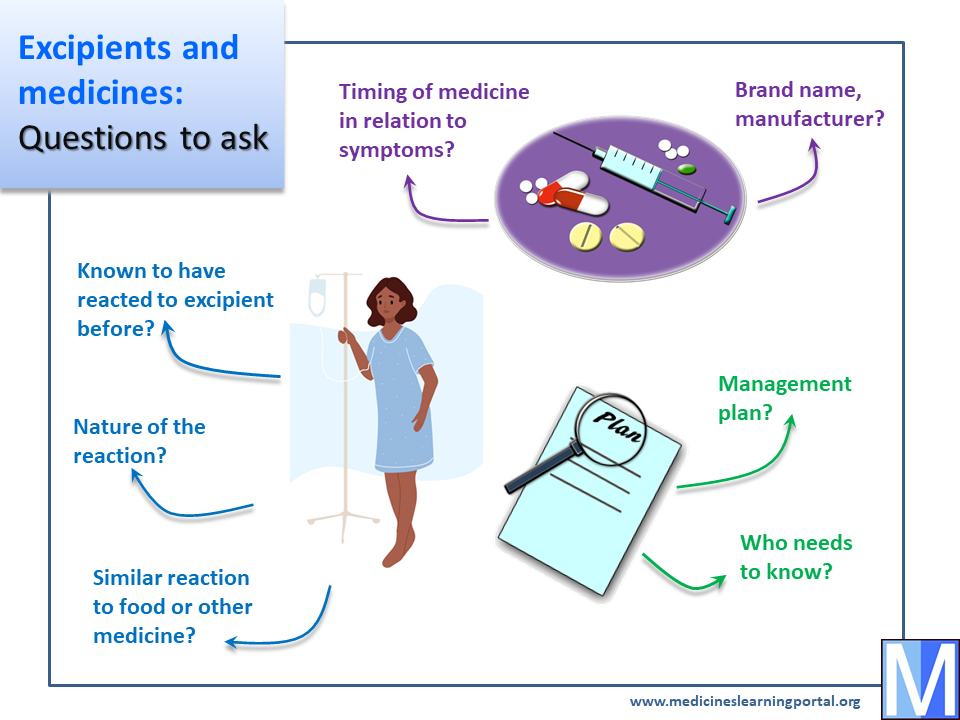Excipients: Suggested questions
The medicine
- Timing of medicine administration related to any symptoms? Has a new medicine, or a new brand of an existing medicine, been started shortly before new symptoms were reported?
- What is the brand name or manufacturer? You need to know this for all medicines suspected to be involved, because excipients vary between different brands and formulations of the same drug.

The patient
- Is the patient known to react to a particular excipient, or is the reaction suspected? Patients will often know about problems they have experienced with certain additives or medicines in the past. Has the patient taken other brands or formulations before without any problems?
- What is the nature of any known or suspected reactions to excipients? You'll need a clear description, as you would for any adverse reaction.
- Has the patient had a similar reaction with any other medicine, food or drink? Excipients and additives will be found in other medicines or foods so the patient may have encountered the reaction before.
Going forward
- What is the management plan? Don't just identify the potentially causative excipient. Advise about suitable alternative brands/formulations, or a different medicine that does not contain the excipient.
- Who needs to know? Make sure that any problems related to excipients are clearly communicated to the patient, the ward medical team, and the patient's GP so that the offending medicine is not re-prescribed and further exposure to the excipient is avoided. You must also document a potential allergy or intolerance in a patient's notes, to help the patient avoid exposure in the future.
The 'questions to ask' from every tutorial on this site have been brought together into a Quick Question Guide that you may want to download for future reference.







